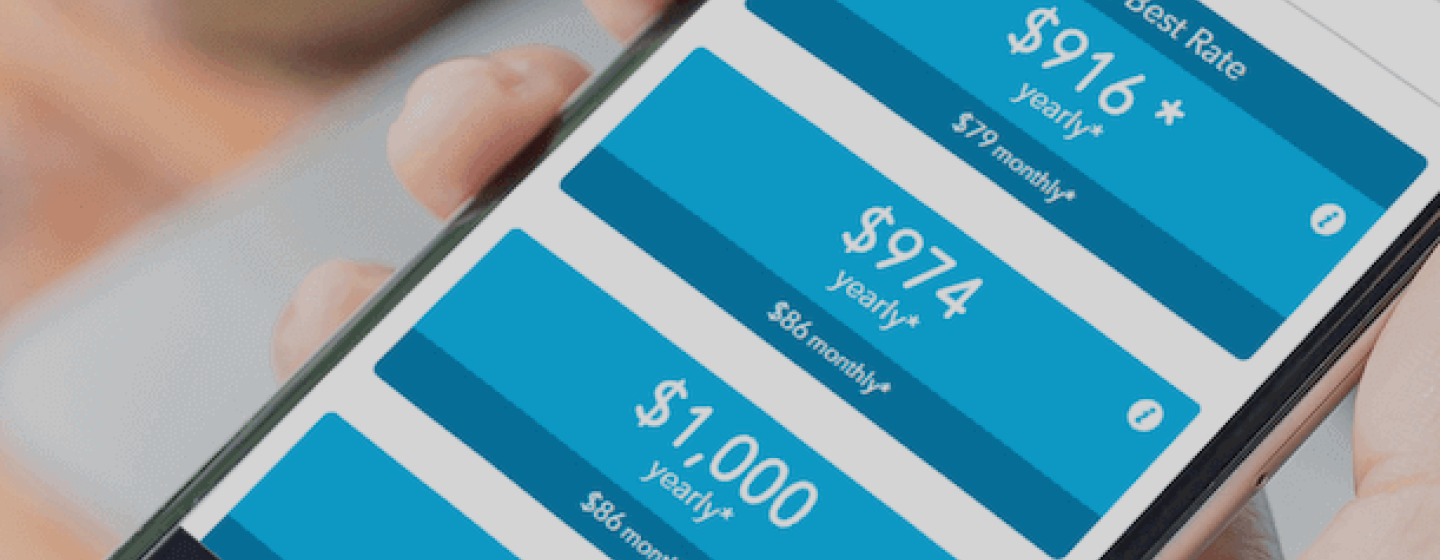
Compare Usage-Based Car Insurance Quotes
Find the cheapest usage-based insurance quotes by viewing offers from 30+ companies
How to get the cheapest car insurance quotes
Compare multiple auto insurance quotes in the time it takes to get just one.
Enter Postal Code
Enter your postal code to begin!

Enter Driver Details
Tell us a little bit about your vehicle, driving & car insurance history.

Compare Your Quotes
Compare your car insurance quotes from more than 50 top insurance companies.

Pick Your Policy
Pick the insurance policy that's right for you to connect directly with the insurance professional of your choice.
What is usage-based auto insurance?
Usage-based auto insurance uses a telematics device to monitor a policyholder's driving habits, then adjusts the driver's premiums based on their performance. Driver's who use their car sparingly, or who demonstrate safe driving habits, are eligible for discounts. Just signing up for a usage-based policy can earn you a 10% discount.
There are two kinds of usage-based auto insurance: pay-as-go and pay-how-you-drive. Each type considers different driving habits when setting your premiums.
Pay-as-you-go
This type of usage-based auto insurance bases your premium on the number of kilometres you drive. You pay a small daily fee, and an additional fee for every 1,000 km you drive. Those who use their vehicle only occasionally can save big time by changing from a traditional car insurance policy to a pay-as-you-go policy.
Pay-how-you-drive
This type of usage-based auto insurance bases your premium on your driving performance. Your acceleration, braking, turning, vehicle usage and ability to follow the speed limit are all factors weighed. The safer your driving habits, the larger the discount you'll receive from your insurance provider.
Frequently asked questions about pay-as-you-go car insurance
Who should have a pay-as-you-go insurance policy?
The more you drive the more expensive a pay-as-you-go policy becomes, so this type of usage-based insurance is ideal for those who drive only occasionally. If you're no longer commuting to work because of Covid-19, updating your policy to pay-as-you-go may save you money. To determine how many kilometres you'd need to drive for a pay-as-you-go policy to make sense, speak directly with your insurance provider.
Which companies offer pay-as-you-go insurance?
Pay-as-you-go car insurance is becoming an increasingly ubiquitous option in Canada. Availability varies by province. To see pay-as-you-go rates from different insurance providers in your province, start a quote with Insurance Hotline.
What if I take my car off the road entirely?
Pay-as-you-go is a great option for occasional driving but not so great if you don't drive at all. Pay-as-you-go insurance requires a base daily premium, which you can avoid if you take liability and collision protection off a vehicle that will be stored on your property. In this scenario, you will still want damage and theft protection.
Frequently asked questions about pay-how-you-drive car insurance
Who should get a pay-how-you-drive policy?
Safe drivers benefit most from this type of usage-based car insurance. Pay-how-you-drive insurance uses a telematics device (installed on board, or an app on your phone) to judge your driving performance in several categories. Those exhibiting safe driving habits will see their premiums decrease the most. Simply enrolling in this program can earn you a discount of up to 10%.
Can I wind up paying more for my policy?
Pay-how-you-drive policies use performance to determine premiums. If safe habits earn lower premiums, do unsafe habits earn higher premiums? It depends on the province; neither Alberta or Ontario insurance providers are legally allowed to raise your premiums based on telematics-reported driving habits.
How are my driving habits measured?
The telematics device used to record your driving performance assesses the following:
Acceleration: whether you speed up gradually or rapidly.
Deceleration: whether you brake gently or aggressively.
Speed: whether or not you follow the speed limit.
Phone usage: whether or not you use phone apps while driving.
Cornering: whether you take turns gently or on sharp angles at a quick speed.
Driving times: whether you drive at times when accidents are most likely to occur (e.g. rush hour).
Quick Car Insurance Quote
Find your best car insurance rate by comparing car insurance quotes from 50+ providers in a single search. Start saving today!




